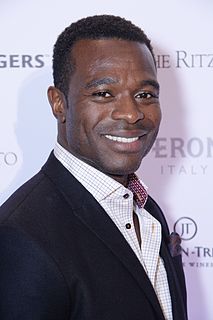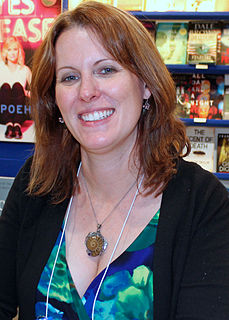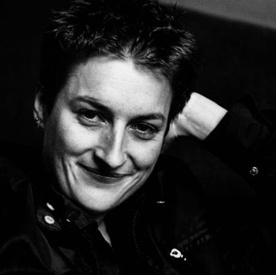A Quote by William James
The worst thing that can happen to a good teacher is to get a bad conscience about her profession because she feels herself hopeless as a psychologist.
Related Quotes
I value in the cat the independent and almost ungrateful spirit which prevents her from attaching herself to any one, the indifference with which she passes from the salon to the housetop. When we caress her, she stretches herself and arches her back responsively; but this is because she feels an agreeable sensation, not because she takes a silly satisfaction, like the dog, in faithfully loving a thankless master. The cat lives alone, has no need of society, obeys only when she pleases, pretends to sleep that she may see more clearly, and scratches everything on which she can lay her paw.
When the soul is naughted and transformed, then of herself she neither works nor speaks nor wills, nor feels nor hears nor understands; neither has she of herself the feeling of outward or inward, where she may move. And in all things it is God who rules and guides her, without the meditation of any creature.... And she is so full of peace that thought she pressed her flesh, her nerves, her bones, no other thing come forth from them than peace.
It was so important that women were involved in 'She's Gotta Have It' because it's about a woman's opinion. It's about her views of herself, and the world around her, and how the world perceives her, and finding that ground for herself - not even a common ground, but that ground for herself in which she can walk on firmly with confidence.
A friend, who's a psychologist, told me about a patient once: a woman who was well educated, had a good job, a house and a loving husband. "I did everything right in my life," said the woman. "But I'm still not happy." She never did what she herself wanted, but what she believed society expected from her.
The words burned on her tongue, but Minerva couldn’t give them voice. What a hopeless coward she was. She could pound on his door at midnight and demand to be respected as an individual. She could travel across the country in hopes of being appreciated for her scholarly achievements. But she still lacked the courage to ask for the one thing she wanted most. To be loved, just for herself.
She emptied herself of Fabio and of herself, of all the useless efforts she had made to get where she was and find nothing there. With detached curiosity she observed the rebirth of her weaknesses, her obsessions. This time she would let them decide, since she hadn't been able to do anything anyway. Against certain parts of yourself you remain powerless, she said to herself, as she regressed pleasurably to the time when she was a girl.
And it's best if you know a good thing is going to happen, like an eclipse or getting a microscope for Christmas. And it's bad if you know a bad thing is going to happen, like having a filling or going to France. But I think it is worst if you don't know whether it is a good thing or a bad thing which is going to happen.
A part of a healthy conscience is being able to confront consciencelessness. When you teach your daughter, explicitly or by passive rejection, that she must ignore her outrage, that she must be kind and accepting to the point of not defending herself or other people, that she must not rock the boat for any reason, you are NOT strengthening her posocial sense, you are damaging it-and the first person she will stop protecting is herself.
A queen is wise. She has earned her serenity, not having had it bestowed on her but having passer her tests. She has suffered and grown more beautiful because of it. She has proved she can hold her kingdom together. She has become its vision. She cares deeply about something bigger than herself. She rules with authentic power.
Yet there were times when he did love her with all the kindness she demanded, and how was she to know what were those times? Alone she raged against his cheerfulness and put herself at the mercy of her own love and longed to be free of it because it made her less than he and dependent on him. But how could she be free of chains she had put upon herself? Her soul was all tempest. The dreams she had once had of her life were dead. She was in prison in the house. And yet who was her jailer except herself?










































